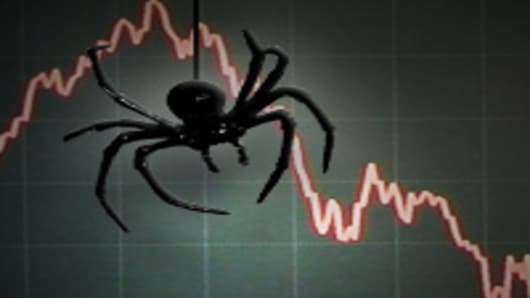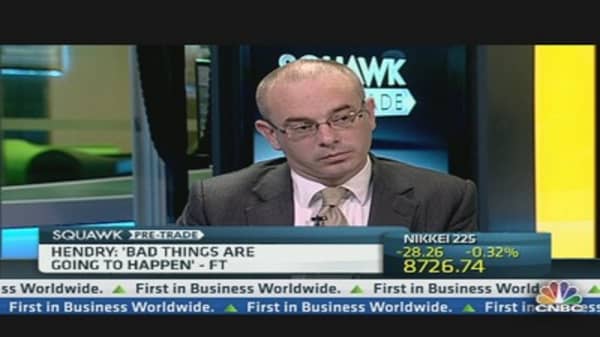The debate over whether the world’s economy is facing a dramatic crash has gained traction in recent weeks, as the euro zone debt crisis continued to dominate headlines and worries about other major economies like the U.S. and China grew.
Bearish forecasts from people like hedge fund manager Hugh Hendry and “The New Depression” author Richard Duncan have grabbed attention. But there are still many who believe that the world is facing gradual change rather than the rapid tumble of a crash.
"This isn’t a crash in a conventional sense, but a structural down-move in global growth. It’s a new and lower trend," Paul Donovan, deputy head of global economics at UBS Investment Bank, told CNBC’s “Squawk Box Europe” Wednesday. "We are going through one of the biggest structural changes that we have seen in the global economy since the 1971-73 process."
The return of risk to the agenda — Donovan believes we are in the highest-risk environment for two decades — has led to fundamental changes in the way companies operate, he said.
"Right now, what we’re seeing is the rise in the cost of capital globally. That means we have to change expectations. We’re going through that now — look at cash on corporate balance sheets," he said.
"We’ve got a generation of corporate treasurers scarred by 2008-09 thinking, they don’t want to rely on banks for short-term funding and trade finance. That creates a very different relationship. It creates a less leveraged but also less dynamic economy with lower trend growth going forward."
Since the credit crisis and the collapse of Lehman Brothers, companies and banks have gradually restored more cash to their balance sheets (related: 15 Companies With Zero Debt), and been reluctant to get into more debt (related: World's Biggest Debtor Nations), despite historically low interest rates.
The notoriously inexact science of economic predictions will become even more difficult as the world evolved, Donovan argued.
"It’s a far more complex work to try and predict in the future,” he said. “We are changing expectations and the way that markets work. The idea of global capital is over. We’re regionalizing. The problem is predicting the outcomes from this."





